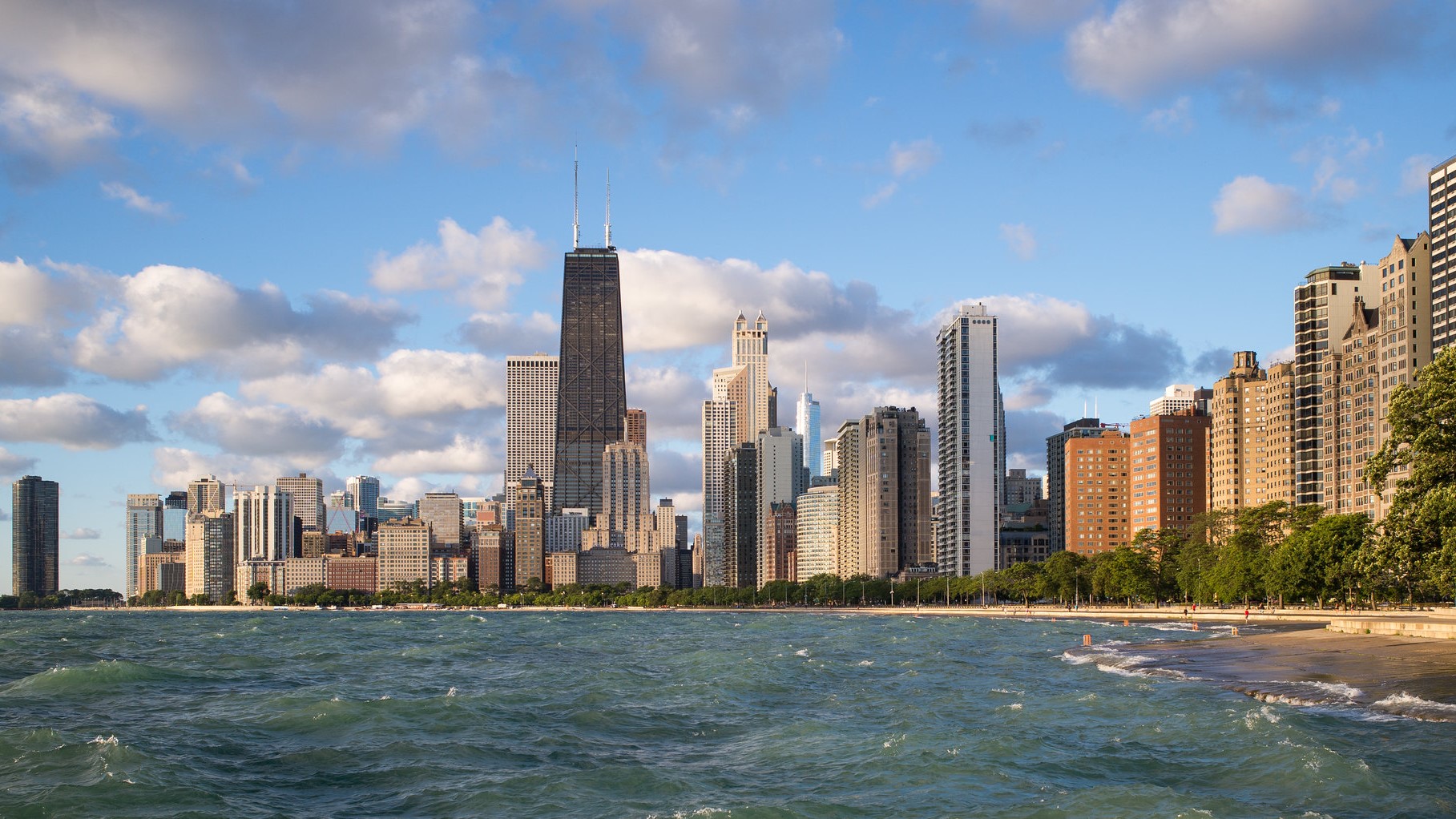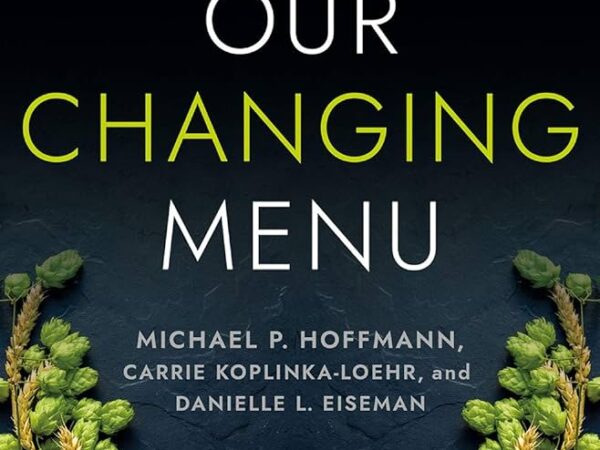
The Flint water crisis that made national and international headlines was a failure on many levels, according to University of Chicago Professor Sabina Shaikh.
Particularly, it was a public policy failure, Shaikh told Great Lakes Now in an interview, and the failure in Flint put a spotlight on environmental injustices.
Shaikh is a senior lecturer in environmental and urban studies, and the director of the Program on the Global Environment at the University of Chicago.

University of Chicago Professor Sabina Shaikh is a senior lecturer in environmental and urban studies, and the director of the Program on the Global Environment at the University of Chicago. (Photo courtesy of University of Chicago)
Her work uniquely intersects the environment, economy and public policy. Shaikh’s interest in the environment started at the University of Wisconsin as an undergraduate student in the environmentally progressive state.
In the interview, Shaikh says the U.S. is seen globally as a water-rich country but there are still millions without access to safe drinking water. And as tragic as the Flint crisis was, lead pipes are not the main source of lead exposure for children, she said.
Shaikh also discusses why climate change doesn’t have to be a partisan issue, the challenges Michigan Gov. Gretchen Whitmer’s carbon neutral by 2050 plan will face and how 18- to 25-year-olds see climate change and the environment.
The interview was conducted by senior correspondent Gary Wilson via phone and email. It was edited for clarity.
Great Lakes Now: After the Flint water crisis peaked in 2016, access to safe drinking water started to evolve into an environmental justice issue with roots in public policy. How do you view the safe drinking water issue today?
Sabina Shaikh: Flint was a unique failure on many levels. Particularly, it was a policy failure, which is what ends up driving environmental justice concerns.
The awareness around Flint has led to great concern about drinking water quality in all communities, not just what we consider environmental justice communities. We see a lot of cities seeking ways to replace lead pipes. But it’s costly and challenging. The replacement of lead pipes is critically important, but so is more urgent attention on even greater exposures to children from lead in paint, soil and air.
Cities are focusing on lead pipes as an environmental justice issue but should also be examining the relocation of polluting industry within cities. The movement of polluting industry to environmental justice communities is an ongoing concern.
Ultimately, environmental justice has to be viewed more holistically, and environmental and public policy has to be more representative.
Globally, the U.S. is considered to be a water-rich country with the best water systems but there are still millions of people without access to safe drinking water. That’s due to lack of infrastructure, pollution and contamination brought on by floods and disasters.
Maintaining and upgrading our sanitation infrastructure is critical to providing better access to drinking water. It’s also necessary to deal with climate change and extreme weather. That’s where a lot of the policy work needs to happen.
GLN: Five Great Lakes governors led by Michigan Gov. Whitmer have called on presidential candidates to invest $179 billion in drinking water, wastewater and stormwater infrastructure in the Great Lakes region. Federal elected officials have stalled on infrastructure since 2017 when the president said it would be a priority. How do those investments move forward?
SS: We have to keep advocating for it on a local and state level with proactive officials like Gov. Whitmer.
NGOs are strong advocates for the Great Lakes, and they need to continue to make it a priority with the elected officials. In addition to advocacy groups in the region, it seems like there’s more investment in water coming from the private sector. It’s developing new technologies, financial instruments and is doing more research and development related to clean water and water conservation.
Another area that we sometimes overlook is local land use policy and thinking about how we can pay better attention to water and hydrology in urban design, planning and construction. When we think about how to zone for development, we need to think about hydrology and water. There’s a lot we can do on the local level.
GLN: Michigan Gov. Whitmer recently announced an initiative that would make the state carbon neutral by 2050. In a fractured political environment, what’s the key to the success of a climate initiative that plays out over the terms of at least four governors?
SS: I wish I knew the answer to that question because it’s a big problem.
Climate change and environmental policy have been a casualty of partisan politics and attention to it wavers significantly with economic conditions.
The details of such plans of this scale matter because there are certain things that most people consider to be personally important and often, political talking points are arranged by singular topics. Things like environment and health are two separate platforms but they’re inextricably linked. That’s why I think about it needing to be more holistic.
In my field of environmental economics, every economist understands the importance of environmental protection to promote sustainable economic development. The economy versus the environment and lately the economy versus lives in the case of COVID-19 are false narratives in the long term.
Collectively we can’t prosper if we’re vulnerable to extreme weather events, constant exposure to pollution and chemicals plus environmental inequities and inequality brought on by systemic racism. Ultimately, nobody regardless of your politics wants to sit in traffic or breathe polluted air or drink contaminated water or be exposed to extreme heat or flooding.
The sooner that politicians can understand that these are common priorities for people and are solvable problems, the quicker they can be addressed. The framing of dealing with climate change matters too. We have to think how to do it equitably because the environmental injustices that result are a manifestation of many layers of policy failure.
GLN: On climate, the presidential candidates couldn’t be farther apart. President Donald Trump pulled the U.S. out of the Paris Climate Accords shortly after taking office. Former vice president Joe Biden’s campaign has bet big on re-engaging on climate. How do the 18- to 25-year-old students you work with, who will inherit the issue, see it?
SS: I certainly don’t intend to speak for students, but I definitely see climate change and equity as among the most important issues for young voters. But there is great nuance in how they think about these problems and the solutions. It is important to have young voices represented, not just as voters but also as decision makers.
I feel the consideration today is more than a decision about a presidential candidate. There’s clearly a call for more transformative change from the ground up. There is a call for representation, equity, and respect for human dignity, and the environment is a critical part of that.
GLN: Your interest in the environment started as an undergrad student at the University of Wisconsin, a state with a progressive environmental legacy. But in 2010, newly elected Gov. Scott Walker prioritized economic development at the expense of environmental protection. Has that trend reversed?
SS: Pitting economic development against the environment was perhaps considered to be an effective tactic by the Walker administration but that’s an outdated way of thinking.
It took away from the state’s environmental legacy and it also failed to account for the full economic value of environmental protection. If you consider everything in terms of cost-benefit to the economy, certainly environmental protection has significant benefits including health and well-being and water protection. Certainly for Wisconsin, there are significant state revenues derived from tourism and recreation. Now people are flocking to places like Wisconsin and Michigan to be outdoors.
GLN: And that desire to be in nature during COVID-19 has driven up demand for campsites, fishing licenses and outdoor gear. Can this increased exposure to the natural world translate to attention to environmental issues by those who normally wouldn’t engage?
SS: There are certain things that many people, regardless of their politics, find personally important.
A long time ago I did my dissertation on the economic value of outdoor recreation. The pandemic has made us all more acutely aware of our surroundings both in our homes and in our outdoor spaces. We’re seeing things in detail that we haven’t noticed previously. There’s access to green space, outdoor recreation, water and other natural areas.
But these things are in high demand and they can be limited in certain areas to certain people. I hope that we’re at a moment where there’s great awareness of the importance of these spaces to people without access.
Perhaps seeking the outdoors will increase advocacy by people who traditionally haven’t been focused on conservation or environmental protection. If this new attention to the outdoors can translate to votes, that would be great.
Read more news on Great Lakes Now:
Trash Fish: Marine debris becomes sculptures at Great Lakes aquariums and museums
One Michigan county tells the story of a nation plagued by water pollution
Want the Youth Vote? Prioritize Climate Change
Chicago Wetlands Shrank by 40% During the 20th Century
Across the U.S., millions of people are drinking unsafe water. How can we fix that?
API key not valid. Please pass a valid API key.Featured image: Chicago (Photo by R. Boed via flickr.com, cc 2.0)




